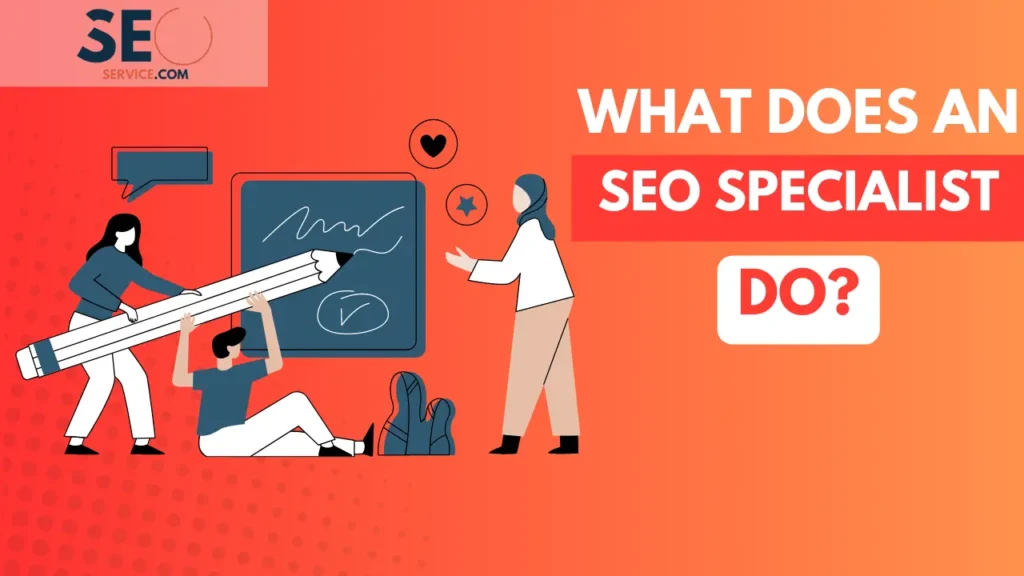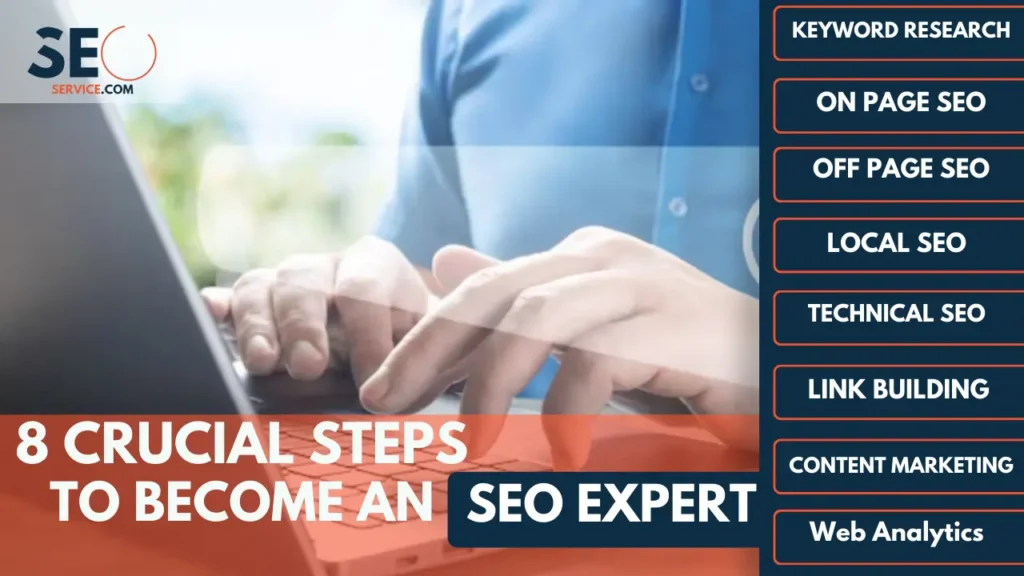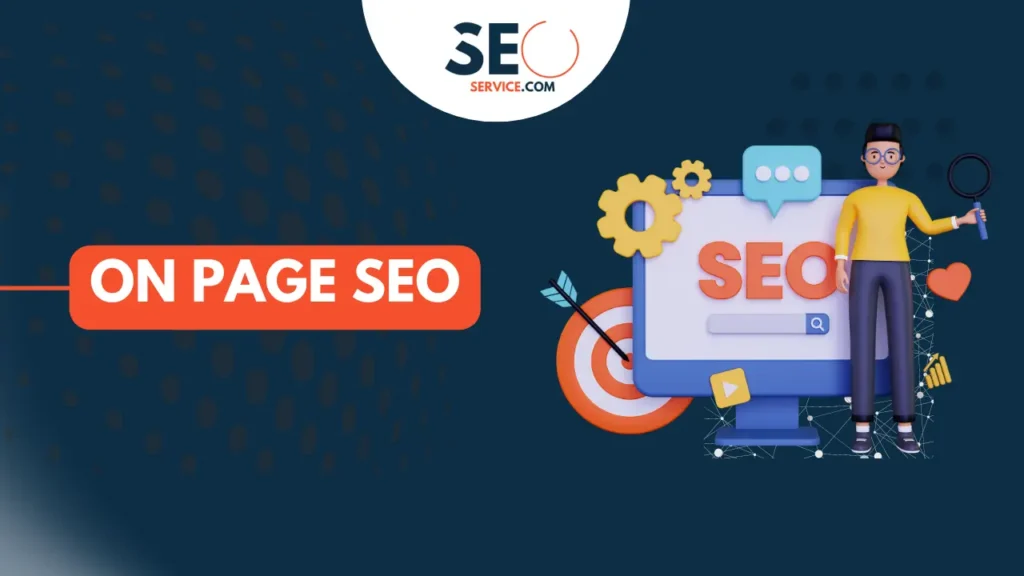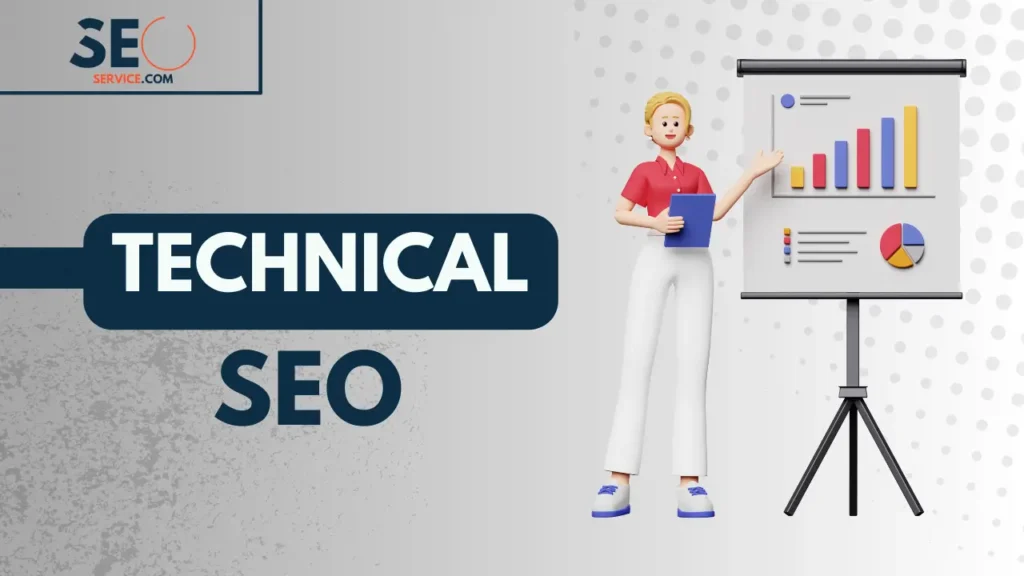Do you know what is seo expert and what SEO is, how it works for your website, and why people invest millions on the SEO on a monthly or yearly basis? If you’re reading this article, it means you have no idea about the world or life of SEO where you have to do each and every thing to please Google so it can rank your website on the first page for your keyword.
If you want to learn who an SEO Expert is, what he does, what skills he has, which degree or certificate he got, and how you can become an SEO Specialist, this article is for you. We’ll dive into the skills, salary, jobs, and responsibilities of an Expert SEO Professional so you can decide whether you can or want to become a Pro in SEO.
What is SEO?
SEO stands for Search Engine Optimization, a technique to rank a website on the first page of SERPs, create brand awareness, and boost sales.
Whether you want to rank your website on Google, FireFox, Safari, and other search engines or increase the sales and profit of the product & services you sell to boost your brand awareness, SEO is crucial.
If you want to learn more about SEO, and wonder what SEO does to your website or business, we advise you to read this guide till the end to become a successful SEO Expert.

When people ask, ‘what is SEO’, the best answer is, “SEO is more than just appearing on a search engine.” If that was the case, then once a company made their google my business account, they would be good to go.
SEO is all about optimizing your website in a way that is easily searchable to current and potential customers. This is done most often through top industry keywords, links to your website on other company’s pages and adding videos to your website as well as on other forms of video platforms like YouTube.
Sometimes the simplest of changes to your websites format can make a difference in its ability to be searched.
How SEO Works?

Have you ever asked yourself a question “what SEO does, how it ranks your website, boost your brand awareness, and increase your sales & profits, and why people want to acquire the Best SEO Services.”
Well don’t worry because you’re not alone as a study suggests that Most people who claim to be SEO Specialists or Professionals also don’t know the algorithms of the search engines and the basics on which Google Ranks a website or blog.
That’s where we come in–An SEO Agency with 10+ years of experience who knows and understands what Most SEOs don’t, which makes us distinguish and stand out in the market.
When people search for a keyword, the search engines try their best to make the brands, products, and services more visible in SERPs so they can attract their target audience with ease.

Suppose you search for the keyword “best free online courses to learn python” now all the websites which are ranking on this keyword have appeared in the SERPs. Some Websites are offering free courses while others are addressing which courses are best for beginners and why they should start from them.
SEO works by optimizing a website’s content and structure to rank higher in search engine results, enhancing brand visibility and increasing sales.
All these posts are related to the main keyword you’re searching for, and none of them are irrelevant or outdated as you can see in the above picture. That’s what SEO Does and you can do it with determination, a lot of hard work, a will to never give up.
Who is An SEO Expert?
Do you know that 95% of the search traffic of your or most websites comes from the first page of the Google SERPs and almost 74% of small online businesses need an SEO Specialist who can rank their businesses & blogs on Google.
An SEO Expert creates SEO optimized content and strategies, focusing on positive user experience and using the right keywords to attract a target audience for better website ranking.
An SEO Specialist knows what’s best for your business and design and implement strategies which can easily adjust with the search matrices & algorithms of all search engines especially Google.
Whether you like it or not, you must hire an SEO Expert for your online business in order to grow and expand.
What Does An SEO Specialist Do?

Well SEO Specialists do many things for a website or blog, but here are 5 most important things which you need to learn in order to become an SEO Expert:
- Content Strategy
- Website Optimization
- Paid Search Campaigns
- Stay Up to date With Latest Algorithms & Search Matrices
- Review the overall performance of websites & search campaigns
Content Strategy
To rank a website on Google or reach out to a million people with a blog, it’s crucial to create a content strategy before you start your online business, otherwise you’ll just be shooting the stars with a water gun.
An SEO Professional creates the content strategy with the keyword volume, keyword density, level of competition, and which keywords the competitors use to rank on the first page in mind so the people can expand their business and get more clients.
Website Optimization
No matter how many links you build or create, if your website loading speed is slow or the pictures or content doesn’t load within a second, all the users who will visit your website will leave immediately which can boost the bounce up rate of your website and you can lose your reach.
SEO & Website Optimization is crucial for a website more than its ranking because if the users can’t find what they search for, they will instantly leave your website without wasting a single second, and all your hardwork will go to waste.
Paid Search Campaigns
Only an expert SEO Professional can successfully operate the paid search campaigns because they decide which pages need pay per click, the budget of the ads, and the keywords to target.
They have the ability to find the best keywords to bid on, display websites to potential customers, and offer solutions to the ones facing the problems.
Stay Up to date With Latest Algorithms & Search Matrices
Google and other Search Engines change their search algorithms and matrices from time to time, and some reports say that “Google Change its algorithms thousands of times in one year so the users can easily find the content & solutions they’re looking for to avoid loss of time, money, and energy.”
If you want to become an SEO Expert, you have to stay up to date with all the algorithms and search ranking factors to gain the experience by trying all the things.
Review the overall performance of websites & search campaigns
Knowing how to optimize your site to be ranked highly by search engines will allow your site to appear high in your potential clients’ search results.
The last and final thing you need to learn and understand is that you have to take a daily or weekly analysis of your website to see which keywords are ranking and which aren’t to identify the problems, find and fix broken links, and identify the problems in your search campaigns to propose a solution.
8 Crucial Skills To Become An SEO Expert

To become an SEO Expert, you have to master many skills and each skill has a distinct use and function, but don’t worry because we has gather a list of top 8 SEO Skills which will boost your SEO Career and growth:
Key skills include Keyword Research, On-Page SEO, Off-Page SEO, Local SEO, Technical SEO, Link Building, Content Marketing and Web Analytics.
- Keyword Research
- ON Page SEO
- OFF Page SEO
- Local SEO
- Technical SEO
- Link Building
- Content Marketing
- Web Analytics
Keyword Research
Before you start the SEO of any website, it’s crucial to find all the keywords with high search volume and low difficulty within an industry to ensure the success & ranking position of your website.
An SEO Expert uses several keyword tools like Ahrefs, Semrush, Keyword Everywhere and Google Trends to locate the best possible keywords to build an authority in respective fields and industry.
You just can’t use all the keywords you find, and write a blog on them or create backlinks before understanding whether they’re useful or not.
A good content strategy always revolves around keyword research so you have to find the keywords that work for your website and generate the results you wish for.
ON Page SEO

ON Page SEO is also known as ON Site SEO which basically refers to optimizing your content including your images & videos & HTML Tags and much more. If you want to become an SEO Expert, you have to structure your web pages and content to analyze and increase the speed of the website to secure the top 5 positions on all search results.
And if you’re wondering how I can do the ON Page SEO of my website, you can start by optimizing your headlines or title & description & H1 to H6 Tags & internal/external links.
OFF Page SEO

OFF Page SEO or OFF Site SEO is known for creating links within or outside the website, creating a brand image on social media, generating a successful content marketing strategy for the website so it can build an authority in your respective field and rank on the first page of Google.
Everything you do to rank your website outside the website is concluded in OFF Page SEO whether it’s Guest Posting & Article Submission & Listing your business in Business Profile websites.
Local SEO
If you have a local business & want to expand your business from a town to a whole complete city or even a country, Local SEO is your way to go. Why? Because it has the ability to rank your business website on the first page of your local search results.
Whether you sell vegetables & fruits or you want to promote your services to more customers & clients, Google My Business is the best Local SEO partner you got and will keep your priorities at top without costing you a lot of money.
Technical SEO

Have you ever seen an SEO Professional working with a web developer, do you wonder what they discuss, and what are they working on? Well your answer is Technical SEO because it has the ability to make your website easier for search engines like Google and Bing to index and crawl.
Everything that works behind the working and success of your website like increase in site speed, remove duplicate content and dead links, create a user friendly structure, and ensure the security of your pages–all are part of the Technical SEO.
Link Building
Do you know how businessmen increase or expand their business in multiple cities and countries or how you can do it too? The answer is simple: Link Building. They contact their fellow businesses or competitors and ask them to promote their products or services in exchange for money and goods.
The best part is you can do it too by asking your competitors to allow you to create a blog post for them in which you include the links of your website and if they approve your blog post, your site will get tons of traffic and relevant links which will help you in building the authority in your respective field.
Content Marketing
Content Marketing is one of the best SEO strategies you can make to outsmart your competitors and include the creation of blog posts, images, videos and other infographics to attract your target audience so they can relate to your brand and understand that you have the knowledge and authority in your field.
Web Analytics
No matter what kind of SEO Strategy you make or how you market your content, if you don’t know how to analyze and track the results of your each try, your every effort will go to waste. An SEO Expert always gives the priority to set up the web analytics before he/she implements their SEO Strategy into work.
Web Analytics Results allows you to see which keywords are ranking and where most of your traffic comes from to identify the dead links and non working keywords. Google Analytics is the best free Web Analytics tool you can use to analyze & track your search results.
How To Become An SEO Expert in 2024?
Well currently there are only 2 known sources and ways to master SEO and we’ll recommend you to use both of them to become an Expert in search engine optimization:
- Courses
- Work Experience
Courses
If you search for the “free online SEO Courses” on the internet, many educational websites like Coursera & Udemy & Simplilearn & Skillshare will appear on the first page of the SERPS and all of them offer both free and premium courses from beginners and advanced level.
You can use all these courses to build a strong base of SEO which will help you in getting an associate job or internship. Try to avail the courses which offer certificates & Exercise base test systems so you can try everything you learn from 0 to 100.
Work Experience
SEO is not a field which you can master through just courses but instead you have to struggle hard and work under SEO Experts as apprentices to gain the practical knowledge of the field.
We recommend you to gain as much knowledge as you can to hone your skills from a level of knife to the highest level of katana to understand how search engines work and rank your websites.
Salary of An SEO Expert in 2024
According to our research, the average salary range of an SEO Expert lies between $45,000 to $128,341 per year because the salary of Junior SEO Expert starts from $45,000 and Mid Level SEO Expert Salary starts from $60,000 and the salary of Senior SEO Specialist starts from $80,000.
It all depends on the level of your skills, your portfolio and the work you have done in your whole SEO career, and your geographical region so you have to choose the company you want to work for with great care and respect.
How To Find The Best SEO Expert Jobs in 2024?
Fiverr, Upwork, Freelancer and LinkedIn are some of the best platforms where you can apply for SEO Expert Jobs in 2024 and if you want to apply directly on the company’s jobs forums, we’ll advise you to visit the top SEO Agencies & Blogs and try to find their career pages where they open their vacancies.
Fill their forums and wait for their emails to secure your SEO Expert Job Position whether it’s an associate job or an senior SEO Expert, you have to start from somewhere. Don’t lose hope and try to do everything in your power, connect & message all the SEOs on the internet to be aware of all the SEO Jobs to find the best one which suits your preference and budget.
Conclusion
Becoming an SEO Expert isn’t an easy task, it’s a way filled with difficulties and you have to overcome all the hardships with focus & determination and a will to learn each and everything from anyone.
Don’t quit if you are stuck anywhere along the path, read articles, watch youtube videos, and purchase premium courses so you can learn the best SEO practices and strategies which will work for all kinds of websites and blogs.
If you need help or want to acquire the best SEO Services, we’ll advise you to contact our team. We’ll try to do everything in our power to solve your queries and rank your websites & blogs so you can get the best traffic, attract your target audience, and secure the best position on the SERPs.

